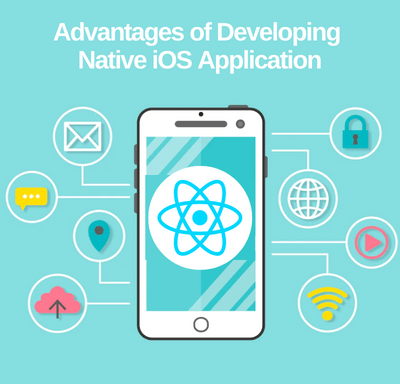
About us
Our Services
Our Expertise
Our Experience
Follow us
Why e2logy?
- We strive to provide superior customer service and ensure that every client is completely satisfied with our work.
- Our engineers are trustworthy, dedicated, and experienced and will go the extra mile to solve your IT issues.
- We are committed to delivering outstanding, cutting-edge IT solutions that add real value that goes beyond what is expected.

Advantages Of Developing a Native iOS Application

Applications that are native to a specific operating system, such as iOS or Android, are developed using platform-specific programming languages known as native apps. Developing native applications is the most common way to create mobile applications. Platform-specific native apps employ languages that adhere to the platform they are developed on.
The data in native apps is stored in the cloud or the device’s memory, so they are independent. The other browsers are not needed for the launch of native apps.
Develop your app using native technology
App developers tend to choose native mobile apps for their businesses. Developers can write code to integrate operating system-specific features and optimizations using Apple and Google’s development tools and SDKs.
Developing native applications has several advantages:
The ability to operate quickly and smoothly
Native elements already take brand-specific features into account. Performance is seamless and fast since native elements take these into account already. Developers must ensure that their apps will work on any device on which they can install them. It is possible to use native elements and APIs to achieve this goal since native elements are specific to the particular operating system.
A superior UX/UI
The interfaces of native iOS and Android apps are the same as those of apps developed for these platforms, thus providing a seamless experience for users. Developers can make apps easier to use by adhering to these standards. The user experience and interface of native apps are better than those of hybrid apps.
Safe and dependable to use native mobile apps
The advantage of native apps is their superior performance and security. There are numerous browsers and technologies used by web apps such as JavaScript, HTML5, and CSS, and because they are non-standard, they are more likely to have performance holes. It is important to build native mobile apps if you want to guarantee users’ data security. Apps built for native devices can also incorporate mobile device management capabilities, allowing administrators to manage apps remotely from individual devices, including wiping all their data and the app.
It is More Collaborative and Intuitive
Native apps built for mobile devices offer a better user experience than those developed for desktop devices. It is the superior user experience that makes native mobile apps so attractive. A particular operating system is designed for them from the beginning. Thus, the user experience is optimized, and the operating system is aligned with the guidelines. These types of apps inherit the appearance and feel of their devices’ operating systems, so they appear to be integrated into the device’s OS.
On all platforms, they have specific UI standards that result in a more natural flow of the app. Effortlessly deleting a leaf element is one way the user can learn the app. It is easier to interact with apps when you adhere to specific guidelines since users are already familiar with the actions and gestures they need to perform.
Better integration of mobile hardware
A native app has many advantages, one of them being integration with hardware. They are more readily integrated with the hardware and execute the processes with greater speed. Thus, native apps are the best option for hardware integration. Push notifications from native apps are also a great benefit. Applications that are native to a device and its operating system benefit fully from the hardware features. Native mobile apps offer many benefits, making them an excellent choice when developing apps.
Native apps work offline
The best option if connectivity is unavailable is to use native software. The advantages of native apps include independence and the ability to be used without the need for an internet connection. You do not have to worry if you don’t have network coverage or having trouble connecting to the internet. Organizers, navigators, and even games can download content so they can work offline.
Using native applications will give you the best results. With a native app, you no longer have to worry about slow internet or bad connections.
Development with less bugs
In contrast, maintaining two separate applications in two codebases is much more challenging than doing the same for two different applications. Because you will not be using a cross-platform tool such as Xamarin or Cordova to build native apps, there are fewer chances for bugs to occur. Through a bridge, hybrid apps access hardware, which can impede development and frustrate users.
It is common for new Android and iOS versions to cause this problem. Developers of native mobile apps can now build applications using the most recent features using new software development kits (SDKs). Native applications benefit from this lead time when they update their operating systems to access new platform features.
Engaging your users
A lack of limitations makes advanced customization possible. Suppose you need to decide between two possibilities. The solution is only acceptable to you in one case. But in another instance, everyone else should be pleased with it as well. Only two people are left to please, so it is not an easy task.
App development is the same. Neither operating system requires developers to combine features. An application that is completely custom can be developed for Android or iOS. Furthermore, OSs offer a variety of flexible tools and solutions to use, whereas cross-platform frameworks tend to be less common.
Conclusion
Want to ensure that your users are using an app that is more reliable, and more stable? Native development is the way to go. Based on the use cases and types of apps you will be provided; you will decide whether to use a hybrid or native framework.
Although hybrid apps are possibly a better choice if you are not focusing on the user experience and need something on the market rapidly and inexpensively.













